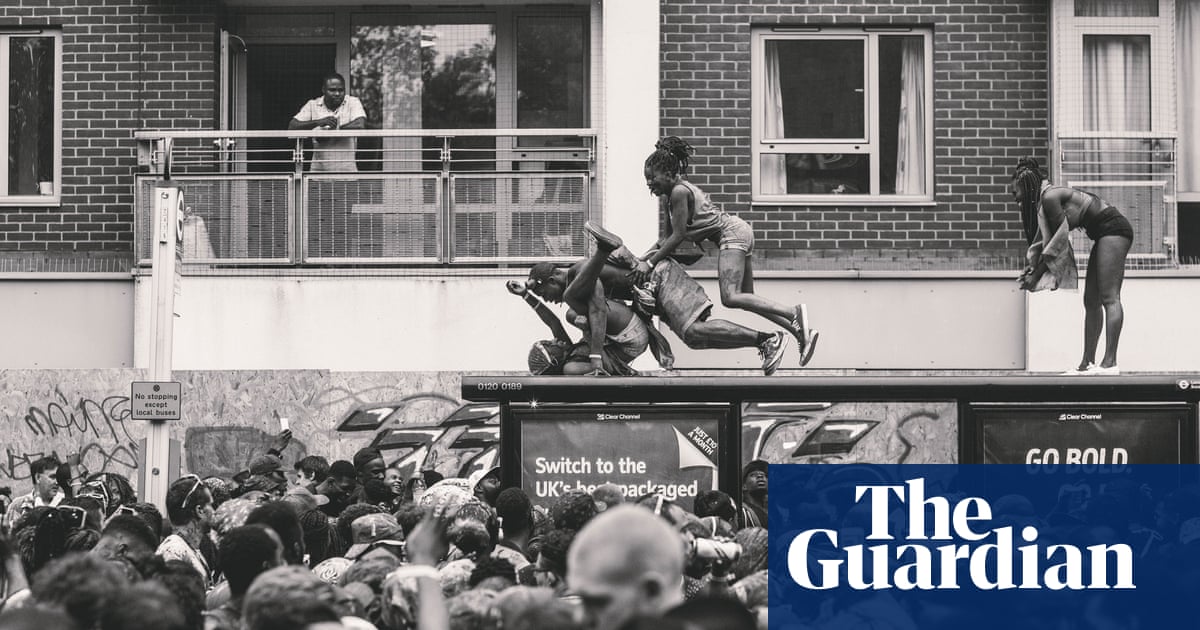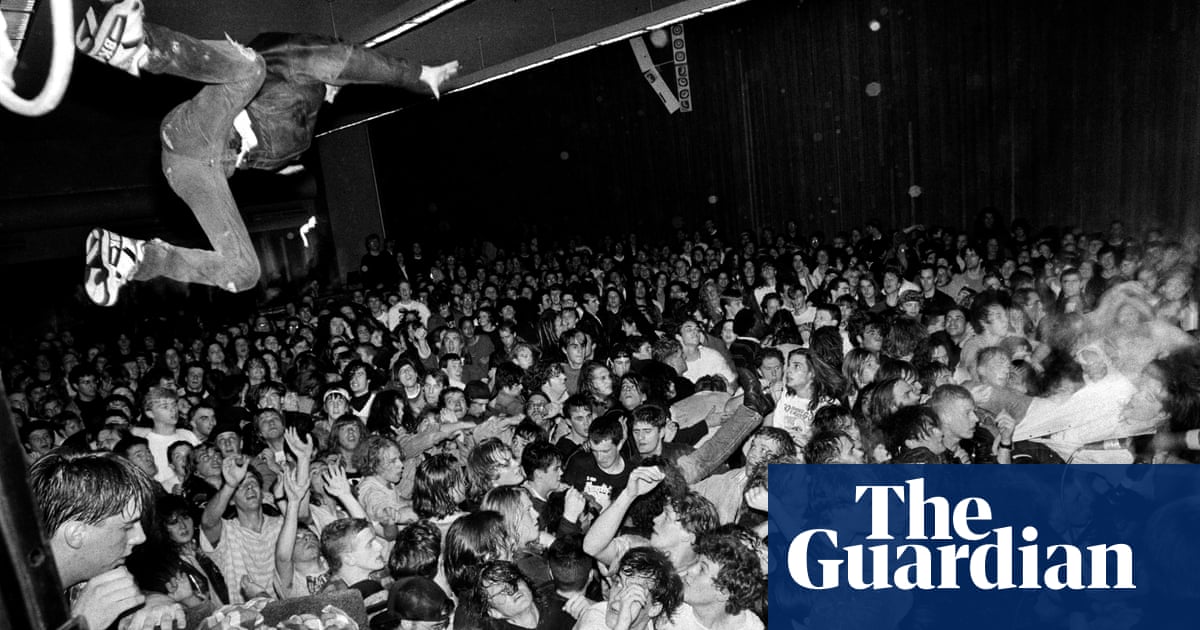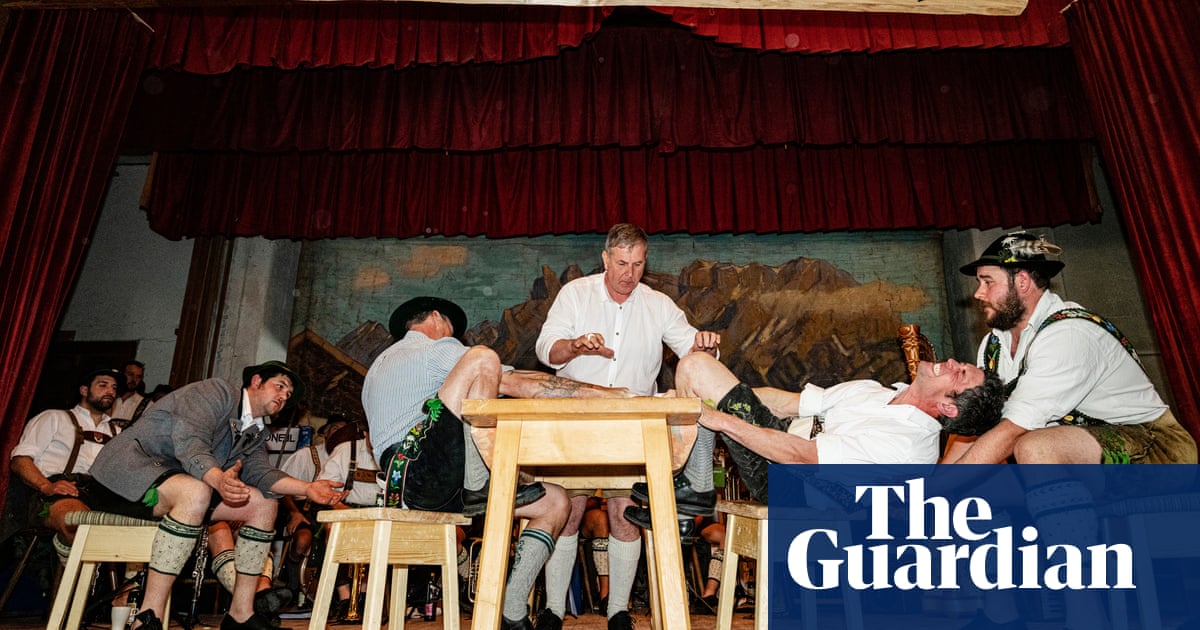
Itook this on the first day of the protests in Foley Square, New York, following the murder of George Floyd. I’ve witnessed protests before but nothing like this. It was intense, volatile and angry. People were sick and tired – and ready to fight for their rights.
The video of his killing came at a specific moment. People were already angry after the shooting of Ahmaud Arbery in Georgia. And in New York, a viral video of a white woman who called the police about a Black birdwatcher had made people even angrier. But when that video appeared, something changed. Black people knew it could have happened to any of us.
This man was one of the first of thousands to be arrested that summer in New York. As soon as I took this shot, I knew it was special. It was something pretty much all Black people could relate to. This man was arrested for speaking up, for daring to question authority. I’ve been arrested for the exact same thing.
It was difficult to watch things unfold and document it all without wanting to be involved. Initially, I went out with a Black Lives Matter T-shirt on. But that was the last day I did that. Not that it mattered – I got arrested, punched in the face and harassed by officers anyway. When you’re Black, the side is always picked for you, right from when you come out of the womb. Your skin colour always comes first.
In the heat of it all, I don’t think I realised how big these protests were going to get. The minute I posted this on Instagram, it became my most liked image of all time. I thought the protests might last a few days, then die down. Instead, it was the beginning of a year of protest photography for me all across the US.
This photo completely changed my career. First, it changed what I covered. I had always been known for music photography. In some ways, that was great training. Shooting performances means your eyes are always on the move – there’s action at all times and you need to be aware every second. It’s the same for protests. Anything can happen at any minute. If I was ever approached in the street by people who recognised me, it was for my music work. Now, it’s for the protest series.
This shot also changed the way I worked. In music, I wanted the exclusive shot no matter what. I could be kind of territorial. But with something like this, of course you still want the best shot – but it was no time to be selfish. It was so much bigger than any one of us, and no photographer could have captured everything alone.
The experience definitely taught me to be more collaborative. And it showed me how few Black photographers were working in this kind of photojournalism. When I headed out to Minneapolis to cover the trial of Derek Chauvin, the officer who killed Floyd, people were asking how to help, if they could donate to fund my work. I didn’t need that money, but we managed to raise enough to get four Black photographers who were out of work to be in the city for the trial. It is important to me that our stories – the stories of Black people – be told by Black people.
The protests are going to define this generation and, I hope, those to come. The problems haven’t gone away. There are still places some people feel I don’t belong. But progress is being made. I just hope that those people who still look ill on me don’t pass that prejudice on to their kids.
When the history books get written, I hope my photos are included. I hope they form part of the long tradition of civil rights photography. I’ve spent so much time going through the history books, looking at those images of Martin Luther King on the Lincoln Memorial steps and wishing I could have captured images like that. Now I’ve realised that I can’t go back in time and I don’t need to. I just need to be there for the next time.
American Protest: Photographs 2020-2021 by Mel D Cole is out now
Mel D Cole’s CV
Born: Syracuse, New York, 1976.
Trained: Self-taught.
Influences: Gordon Parks, Ricky Powell.
High point: “Right now. I feel like I’m finally the photographer I always wanted to be.”
Low point: “About 15 years ago, I quit my day job to photograph full time. I wasn’t ready and couldn’t pay my rent.”
Top tip: “Show your range. Don’t be afraid to try something new.”












